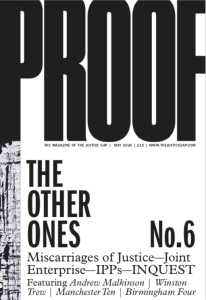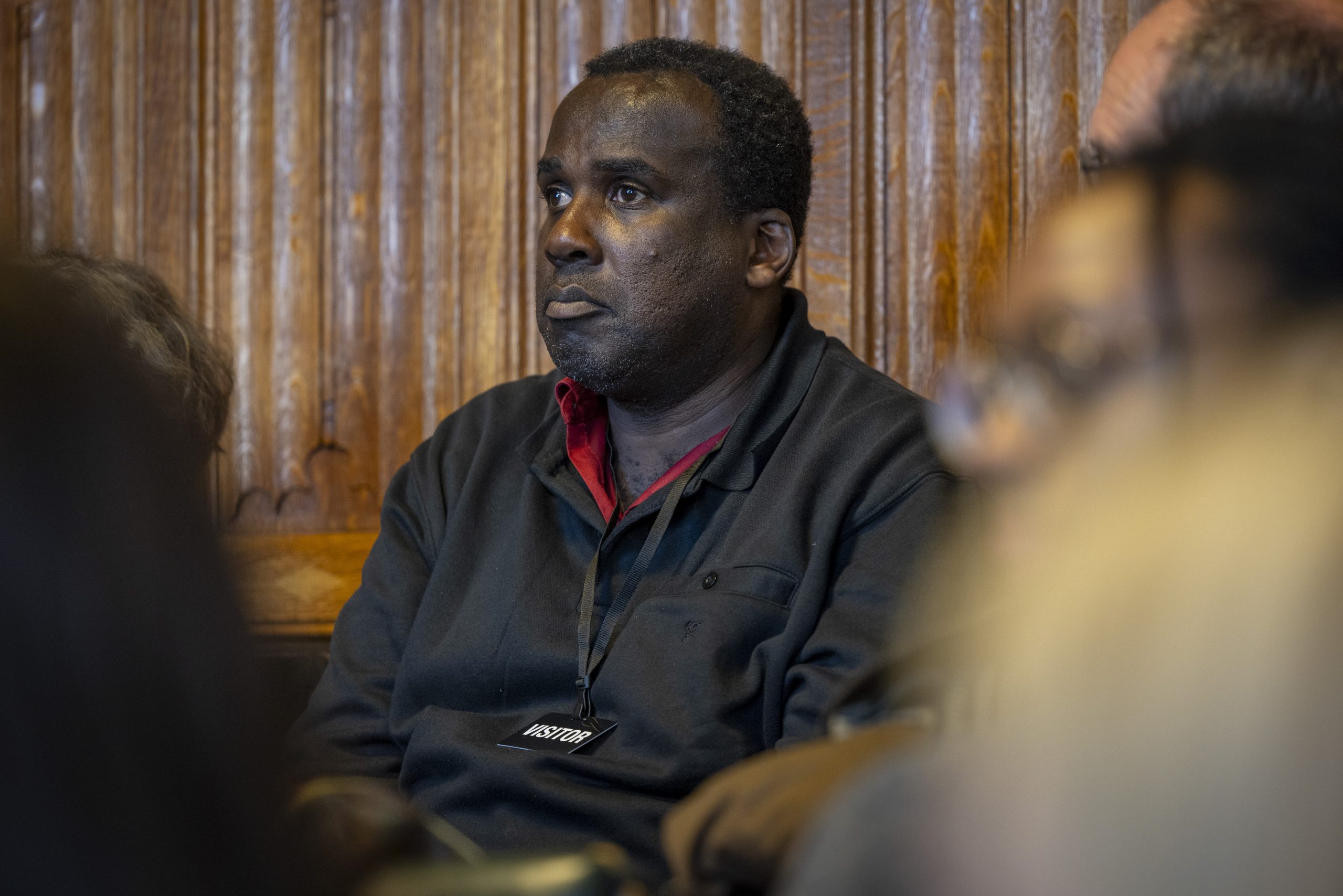Oliver Campbell’s legal team have criticised an ‘increasingly conservative’ Court of Appeal after the court contemplated a retrial more than a third of a century after his wrongful conviction. The Court of Appeal this morning overturned his conviction for the murder of off-licence owner Baldev Hoondle – as reported today (here).
The judgement was handed down more than six months after an initial hearing two-day hearing in February, plus an extra sitting in May. There was further delay after the prosecuting counsel John Price KC pushed for a retrial 33 years after a then 19-year old Campbell was convicted and spent 11 years in prison. Lord Justice Holroyde, who presided over the court, explained that the rejection of the application was ‘a finely balanced decision’ saying it attached ‘considerable weight’ to the public interest in ‘a fair trial resolving the issues in this case’. But, the judges ultimately decided, that the public interest was ‘outweighed’ by the consideration that Campbell ‘who has served over a decade in prison and has been subject to licence conditions for more than two decade’ could not ‘have a fair trial in circumstances where he will be so severely handicapped in addressing the matters which he would want to and need to address’.
- Read about the case of Oliver Campbell in PROOF, issue 6, by Nicholas Reed Langen
- Photo: Andy Aitchison at the launch of PROOF 6.
 The Oliver Campbell case has been described as ‘one of the most outrageous miscarriages of justice in recent times’. In July 1990, an Asian shopkeeper was shot and killed in front of his son during a robbery of his off-licence on the Lower Clapton Road in Hackney, East London. Witnesses agreed that the two men who carried out the robbery were black and around 5 ft 10 inches tall. The case has featured many times on the Justice Gap and an interview with Oliver featured on the podcast. He has often been described as ‘a gentle giant’. At 6 ft 3 and well-built, he has a striking and imposing build.
The Oliver Campbell case has been described as ‘one of the most outrageous miscarriages of justice in recent times’. In July 1990, an Asian shopkeeper was shot and killed in front of his son during a robbery of his off-licence on the Lower Clapton Road in Hackney, East London. Witnesses agreed that the two men who carried out the robbery were black and around 5 ft 10 inches tall. The case has featured many times on the Justice Gap and an interview with Oliver featured on the podcast. He has often been described as ‘a gentle giant’. At 6 ft 3 and well-built, he has a striking and imposing build.
Oliver Campbell was sentenced to life despite his co-accused admitting the robbery and providing a written account identifying the killer and confirming that Campbell had nothing to do with the murder. The jury was never told of this account. He was a highly vulnerable 19-year old at the time of his arrest after having suffered a severe brain injury as an infant. His supposed confession was littered with obvious absurdities and bizarre inconsistencies. Campbell was subjected to 14 police interviews described by his lawyers as ‘misleading, bullying and unfair’. They featured multiple PACE breaches, not least the absence of a duty solicitor in the key interview in which he ‘confessed’.
There has been concern about the safety of the conviction for many years. For example, a 2002 BBC Rough Justice investigation featured an interview with his co-defendant on a covert recording exonerating Campbell as well as identifying the real culprit. More recently. BBC’s Newsnight in 2021 interviewed the duty solicitor, Arthur Mullinger, who spoke out about how he had been ‘misled’ by the police who, he claimed, deliberately interviewed Campbell in his lawyer’s absence.
Oliver Campbell has been represented by Michael Birnbaum KC and Glyn Maddocks KC for more than 25 years. Maddocks told the JG that he was ‘absolutely delighted’. ‘The long journey has come to an end for Oliver – he’s thrilled. He’s a still vulnerable person who’s been utterly obsessed with trying to clear his name since he came out of prison.’
‘It’s been very difficult. Firstly, getting the CCRC to refer a case, you really have to fight,’ he said. ‘They turned us down in the early 2000s – fortunately they took another look but we had to push. Then it was a challenge, and becoming more challenging, to get the Court of Appeal to engage with the issues and deal with a case that seems to me and many people to be fairly clear-cut, but we’ve got there. So much was missed by the court – including the Rough Justice and Newsnight revelations Fortunately, justice has been served.’
Glyn Maddocks KC
Glyn Maddocks argues that today’s judgment adds further evidence that Appeal judges are ‘increasingly conservative and pushing the bar for successful appeals ever higher and higher’.
The conviction was overturned today in the most begrudging fashion with the court showing no sympathy for someone who many are convinced is an innocent and highly vulnerable man who had neither the intellectual capacity nor the physical dexterity to commit the crime.
None of those arguments swayed the court who quoted its 1994 appeal ruling insisting that the prosecution case was ‘a strong one’ and brusquely dismissed almost all of Michael Birnbaum’s 17 grounds of appeal as ‘without merit’.
‘We are nonetheless troubled by one feature of the case,’ Holroyde noted. That one point related to new evidence from Dr Alison Beck and Professor Gísli Guðjónsson as to the changing understanding of the risk of false confessions over the last four decades. ’On that narrow but very important basis, we have concluded that the confessions are unsafe,’ it said. The court expressed ‘considerable reservation’ about the evidence of Guðjónsson, an internationally renowned expert on false confession and suggestibility, because they felt he was ‘engaged in advocacy of the appellant’s case’.
By contrast, the court was impressed by the CCRC’s ‘commendably thorough’ review – despite the fact that the beleaguered watchdog rejected Campbell’s application in the early 2000s and came close a second time to rejecting a second application received in 2020 as reported on the Justice Gap. Campbell’s legal team took the unusual step of publishing the CCRC’s original ‘statement of reasons’ rejecting the application so people could make their own minds up about the merits of the case. At the time, Maddocks told the JG: ‘The injustice was so obvious that we felt we had to do something to fight back on Oliver’s behalf.’
Support the Justice Gap, buy PROOF








